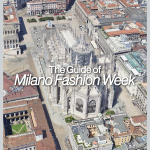
The warm charm of the beach lido
The undisputed symbol of summer and Italian rebirth
August 15th, 2022
Beach chair, umbrella, and sunscreen. The beachgoer's kit is as simple as it is full of rich aesthetic value. Rows of perfectly aligned loungers on a sandy board, colorful wedge umbrellas drawing a hypnotic pattern warmed by the summer sun. Regardless of whatever the shoreline may be, the establishment has always exerted a unique charm, that of a small world made up of regulars, bewildered tourists, and long days made up of "dolce far niente," those little rituals in which everyone has their place. The same cabin, the same sunbed, a small microcosm that welcomes thousands of bathers each year in a tradition that began in 1827 in Viareggio, followed sixteen years later by the "Stabilimento privilegiato dei Bagni Marittimi" in Rimini in a boom that soon led many other areas of the Romagna Riviera to equip themselves. Shortly thereafter other establishments sprang up in Livorno, on the Lido in Venice, on the Ligurian coast, in Naples, and Palermo.
Unlike today, the bathhouse was not an open place in which to spend a day in the company of friends and family but rather was designed to provide guests with maximum privacy in an environment where even the waves were controlled. It sounds strange, but in the 1800s the first bathers were afraid of the waves, something that until then few had faced so directly. After the success found in the Fascist twenty-year period, the real success of the establishment as we know it today came after the end of World War II when, also abetted by the Italian economic boom, the month of August became the time of the summer exodus, when the metropolises emptied and their inhabitants poured into the summer resorts en masse. From Senigallia with its "Rotonda a Mare" to Ostia's "Kursaal," which also appeared in Fellini's I Vitelloni, Cagliari, Rimini, Portofino, Capalbio, Forte dei Marmi, Riccione, and Mondello were also the leading cities in the growth of the tourism sector, turning Italy into one of the two countries, along with France, leading summer seaside resorts.
If the beach became a habit in the summers of Italians, playful activities such as beach volleyball or snorkeling found space among the new hobbies of bathers. Fashion also allowed itself to be influenced first with the appearance of briefs until then understood only as undergarments, but especially the bikini, born in 1946 thanks to French designer Louis Réard. Arriving in Italy only in the 1950s, the two-piece uprooted the extreme sense of modesty in force up to that time, in which women's costumes, as well as men's, covered a large part of the body with few exceptions in models that uncovered the legs.












































































